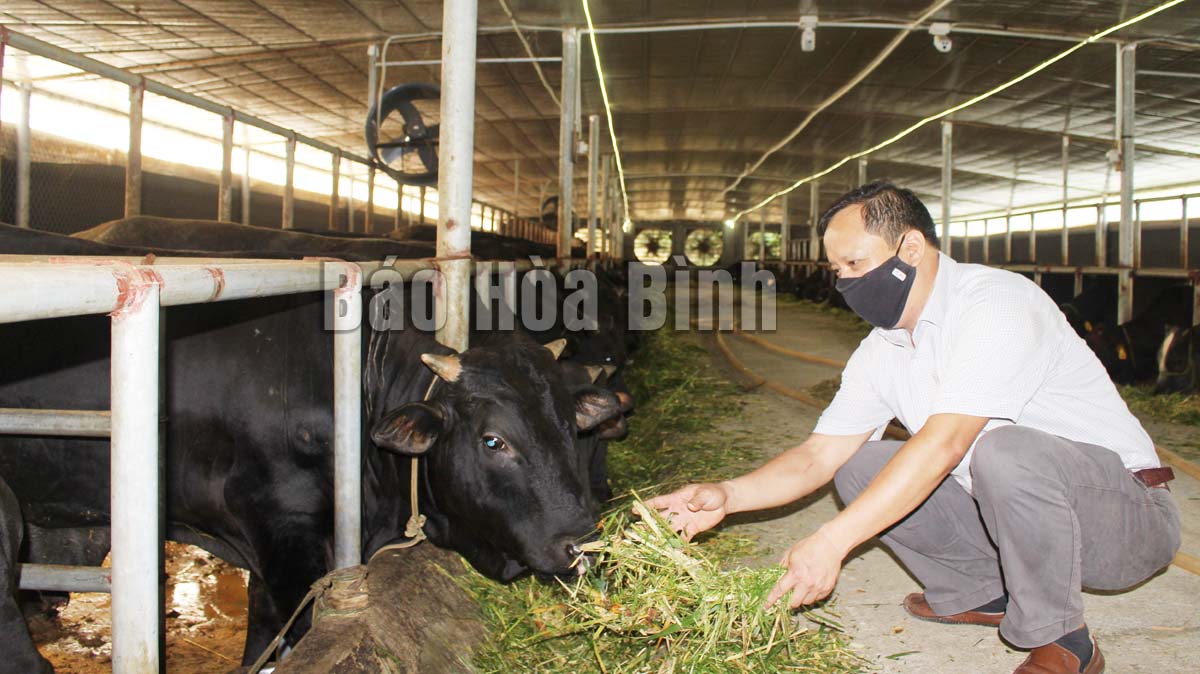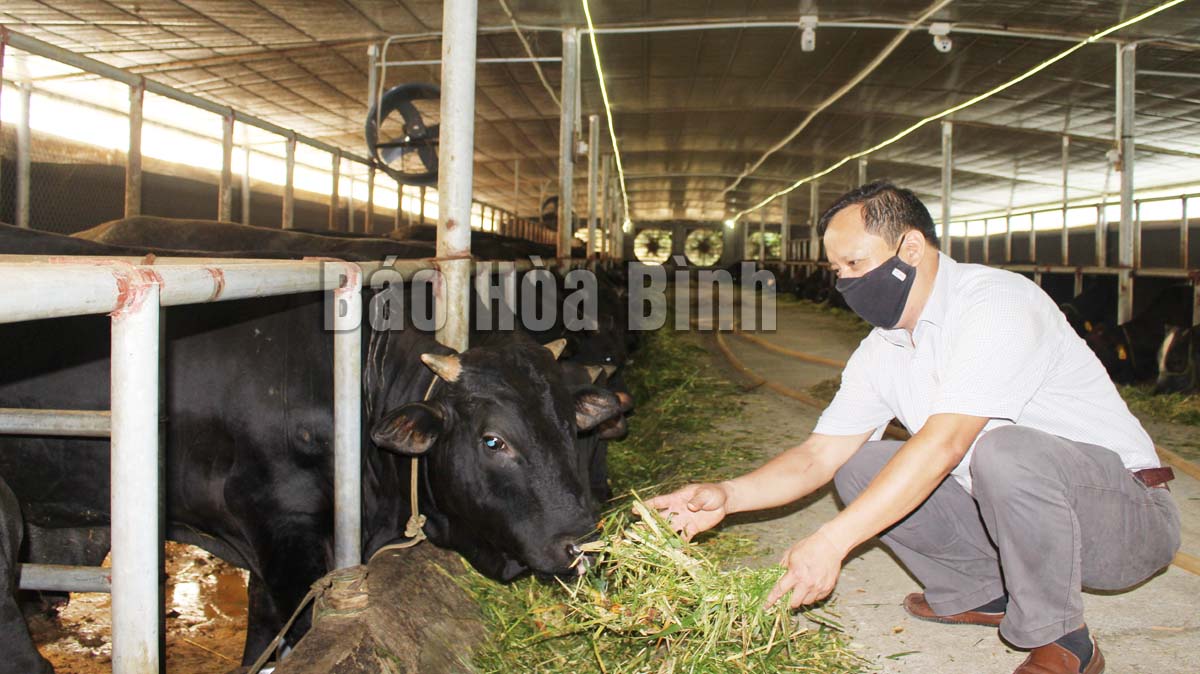
(HBO) - The Cao Son Xanh Cooperative has invested in raising 3B cows, a breed of foreign origin, which produces high economic value towards establishing a breeding chain. The barns are kept clean and well ventilated, while each cow is numbered and has its health and weight checked monthly.

Cao Son Xanh Cooperative, Cao
Son commune (Luong Son) invests in raising 3B cows for high economic value.
(Photo)
Cao Son Xanh Cooperative was established in 2020,
with 7 members. After its establishment, members of the cooperative researched
and boldly invested capital to build a farm on more than 6 hectares, of which,
2 hectares were for grass growing and the remaining 4 hectares were reserved
for barns and a feed processing area. To ensure hygiene in the barns, the
cooperative invested in installing a ventilation system and a modern waste
treatment system.
3B cow is a foreign breed but it has good
adaptability to the local environment and climate. Therefore, Cao Son Xanh
Cooperative has no difficulty in taking care of the cows, which eat grass, rice
straw or sugarcane. The cooperative invested more than 130 million VND to buy
grinders to prepare food for the cows.
Ta Dinh Que, Deputy Director of the cooperative said
after nearly one year, the cooperative's 110 3B cows have been growing rather well.
At the price of 100,000 VND/kg, the market's demand for 3B beef is high and
supply doesn’t meet demand. In the coming time, the cooperative will invest in
expanding the cow raising scale and forming a closed chain from breeding cows
for calves to raising commercial cows for meat to increase added value. In
addition, the cooperative will provide QR code for each cow with the aim of
supplying high-quality food for the Hanoi market./.
According to data from the Hoa Binh Provincial Party Committee, the industrial production index for the first six months of 2025 is estimated to have increased by 20% compared to the same period last year. This marks the highest year-on-year growth rate for this period since 2020.
In the first six months of 2025, Hoa Binh province’s export turnover was estimated at 1.145 billion USD, marking an 18.11% increase compared to the same period in 2024. Import turnover was estimated at $ 804 million, a 17.15% increase, which helped the province maintain a positive trade balance.
The lives of the ethnic minority farmers in Tan Lac district have gradually improved thanks to the new directions in agricultural production. This is a testament to the collective strength fostered through the professional associations and groups implemented by various levels of the district’s Farmers’ Union.
With the motto the "product quality comes first,” after nearly one year of establishment and operation, Muong village’s Clean Food Agricultural and Commercial Cooperative, located in Cau Hamlet, Hung Son Commune (Kim Boi district), has launched reputable, high-quality agricultural products to the market that are well-received by consumers. The products such as Muong village’s pork sausage, salt-cured chicken, and salt-cured pork hocks have gradually carved out a place in the market and they are on the path to obtaining the OCOP certification.
In the past, the phrase "bumper harvest, rock-bottom prices" was a familiar refrain for Vietnamese farmers engaged in fragmented, small-scale agriculture. But today, a new spirit is emerging across rural areas of Hoa Binh province - one of collaboration, organisation, and collective economic models that provide a stable foundation for production.
Maintaining growing area codes and packing facility codes in accordance with regulations is a mandatory requirement for agricultural products to be eligible for export. Recently, the Department of Agriculture and Environment of Hoa Binh province has intensified technical supervision of designated farming areas and packing facilities to safeguard the "green passport" that enables its products to access international markets.



